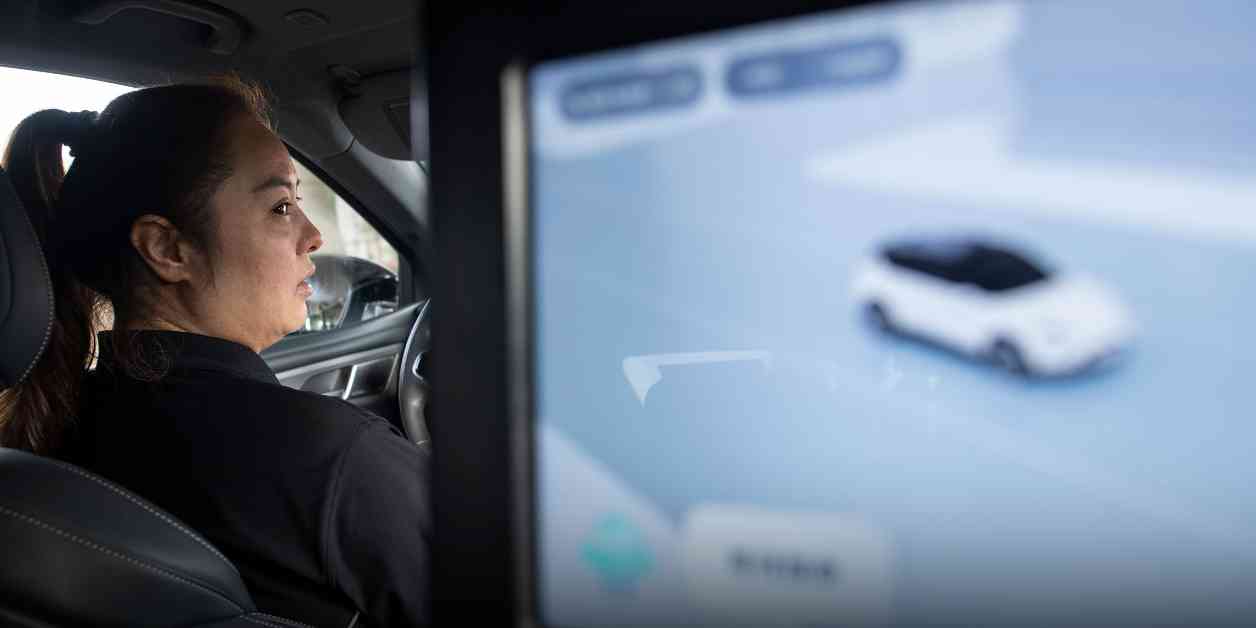The Future of China’s Robotaxis: Meet the People Behind the Wheel
The world of autonomous driving is rapidly evolving, and China is at the forefront of this technological revolution. With companies like Baidu leading the way with their Apollo Go robotaxis, the future of transportation is looking more and more automated. But behind the scenes of these driverless vehicles are the unsung heroes – the safety operators who ensure that these robotaxis operate smoothly and safely on the streets of Wuhan.
The Role of Safety Operators
Wang Juan, a 43-year-old safety operator for Baidu’s robotaxi division in Wuhan, vividly recalls her first ride in an Apollo Go. As she sat in the passenger seat, watching the vehicle maneuver without any human assistance, she couldn’t help but feel nervous. However, as she witnessed the autonomous vehicle navigate through complex traffic scenarios with ease, her confidence in the technology grew.
The safety operators like Wang play a crucial role in ensuring the safety and efficiency of the robotaxis. Their responsibilities include observing the vehicles during testing, issuing remote commands when necessary, and recording various traffic conditions as data points for Baidu’s programmers to optimize the artificial intelligence system. These operators are recruited for their extensive experience in driving, vehicle safety, and road knowledge, making them well-equipped to handle any situation that may arise.
From Testing to Training
Before joining Baidu as a safety operator, Wang worked as a vehicle tester at a Sino-French automaker for two decades. When the company began downsizing, she saw an opportunity to transition into the world of autonomous vehicles. Despite initial uncertainty about what the job entailed, Wang quickly adapted to her role and has since been promoted to team leader, earning praise for her dedication and diligence.
Li Cheng, another safety operator for Apollo Go, also made a career pivot to join the program in its early stages. With a background as a driving test examiner and a stay-at-home dad, Li initially had doubts about the necessity of his role in an autonomous vehicle. However, his experience as a driving examiner proved invaluable in his new position, as he was able to apply his knowledge of road safety and driving habits to ensure the robotaxis operated smoothly.
Changing Attitudes and Challenges
As Apollo Go expands its services in Wuhan, more people are beginning to embrace the idea of riding in a driverless taxi. While some remain skeptical of the safety protocols in place for self-driving vehicles, Wang and Li emphasize the importance of a cautious approach to ensure public safety. Despite concerns about the impact of autonomous driving on traditional taxi services, many operators like Li have found stability and improved working conditions in their new roles.
The road to fully autonomous driving is not without its challenges. Safety operators like Wang and Li face the task of continuously updating the system, eliminating unexpected driving conditions, and fine-tuning the technology to make the robotaxis truly driverless. However, their dedication and passion for the job highlight the potential of artificial intelligence and autonomous driving technology to transform the future of transportation in China and beyond.
In conclusion, the future of China’s robotaxis lies in the hands of the dedicated safety operators who work tirelessly behind the scenes to ensure the safety and efficiency of these driverless vehicles. With their expertise and commitment to excellence, Wang, Li, and their colleagues are paving the way for a new era of transportation that is safer, more efficient, and more sustainable. As autonomous driving technology continues to advance, the role of safety operators will be more crucial than ever in shaping the future of mobility in China and around the world.

















